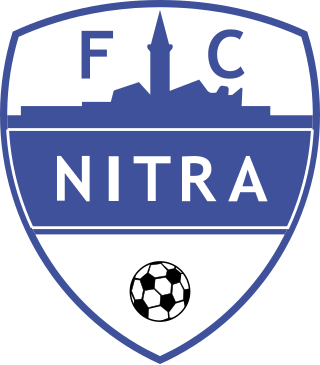Contents
| |||||
| Decades: | |||||
|---|---|---|---|---|---|
| See also: | Other events of 2010 History of Slovakia • Years | ||||
| |||||
| Decades: | |||||
|---|---|---|---|---|---|
| See also: | Other events of 2010 History of Slovakia • Years | ||||
Nagy is a common Hungarian surname, meaning "big".

Lučenec is a town in the Banská Bystrica Region of south-central Slovakia. Historically, it was part, and in the 18th century the capital, of Nógrád County of the Kingdom of Hungary. In 1920, as a result of the Treaty of Trianon, it became a part of Czechoslovakia. The town has a large synagogue, built in 1924, which served a large Jewish population before World War II. The synagogue underwent renovations in 2016.

Zoltán Tildy, was an influential leader of Hungary, who served as prime minister from 1945 to 1946 and president from 1946 until 1948 in the post-war period before the seizure of power by Soviet-backed communists.

Pál Kadosa was a pianist and Hungarian composer of the post-Bartók generation. His early style was influenced by Hungarian folklore while his later works were more toward Hindemith and expressively forceful idioms. He was born in Levice. He studied at the national Hungarian Royal Academy of Music under Zoltán Székely and Zoltán Kodály. He was appointed to the faculty of the Fodor School in 1927 where he taught until 1943 when he was forced out due to wartime political issues.

Zoltán Gera is a Hungarian former professional footballer who played as a midfielder for Fulham, Pécsi Mecsek and Harkány SE, as well as enjoying two spells at Ferencváros and West Bromwich Albion.

"Tatra Tiger" is a nickname that refers to the economy of Slovakia in period 2002 – 2007, following the ascendance of a right-leaning coalition in September 2002 which engaged in a program of liberal economic reforms. The name "Tatra Tiger" derives from the local Tatra mountain range.

FC Nitra is a Slovak association football club, playing in the town of Nitra. Established in 1909, FC Nitra is one of the oldest football clubs in Slovakia.
Tóth is a Hungarian ethnonymic surname that was an older term meaning "Slovak" or "Slavonian or Slovenes", since one of the Hungarian names for both Slovakia and Slavonia was Tóthország.
Molnár is a Hungarian surname meaning "miller". The name may be a loanword from Old Germanic, which is also the same in Slavic, Russian/Belarusian/Ukrainian(млынар) Czech/Slovak(mlynár) Polish(młynarz) and also same in Finno-Ugric, Finnish/Estonian(miller) Hungarian(molnár); however, it is most likely derived from an ancient steppe language thats why it's found able in every Indo-European and Finno-Ugric languages.
Zoltán Harsányi is a Slovak footballer who plays for OFK Rapid Ohrady.
Digi Communications N.V., also known as DIGI Group, is a Romanian telecommunications holding company, which also has businesses in Italy, Spain, Portugal and Belgium. The firm has current statutory seat in the Netherlands and headquarters of effective management in Romania. Digi was founded by Zoltán Teszári, who is the majority shareholder, and has been listed on the Bucharest Stock Exchange since May 16, 2017.
Zoltán Tóth is a Hungarian former competitive figure skater. He is a five-time Hungarian national champion and competed in two Winter Olympics.

Kistarcsa is a town in Pest County, Budapest metropolitan area, Hungary.
Zoltán Pálkovács was a Slovak judoka of Hungarian ethnicity. He was born in Rimavská Sobota and died in a traffic accident in Vienna.
Zoltán Csizmadia is a Hungarian judoka.
Csizmadia is a Hungarian surname. Notable people with the surname include:
Zoltan Zinn-Collis was a Slovak survivor of the Holocaust. He was one of only five living Holocaust survivors in Ireland. He died in his Athy home in Ireland on 10 December 2012. He thought himself to be born on 1 August 1940, but was not certain.

Zoltán Téglás is an American singer. He was the frontman of melodic hardcore band Ignite from 1994 to 2020 and was also the lead vocalist of Pennywise for a short time, appearing on their tenth album All or Nothing. He has collaborated with other bands including The Misfits, Motörhead and Blind Myself. Téglás has another side project called Zoli Band.

Zoltán Opata was a Hungarian football player and manager. As a player, he won six Hungarian league championships with Budapest-based side MTK in the 1920s and regularly appeared for Hungary national football team. After retiring from playing he became a manager and had successful spells with clubs in Yugoslavia, Romania and Poland.
Varga or Vargha is a Hungarian occupational surname derived from the Hungarian term varga, meaning, “shoemaker” or “cobbler”. The Czech and Slovak female form is Vargová.